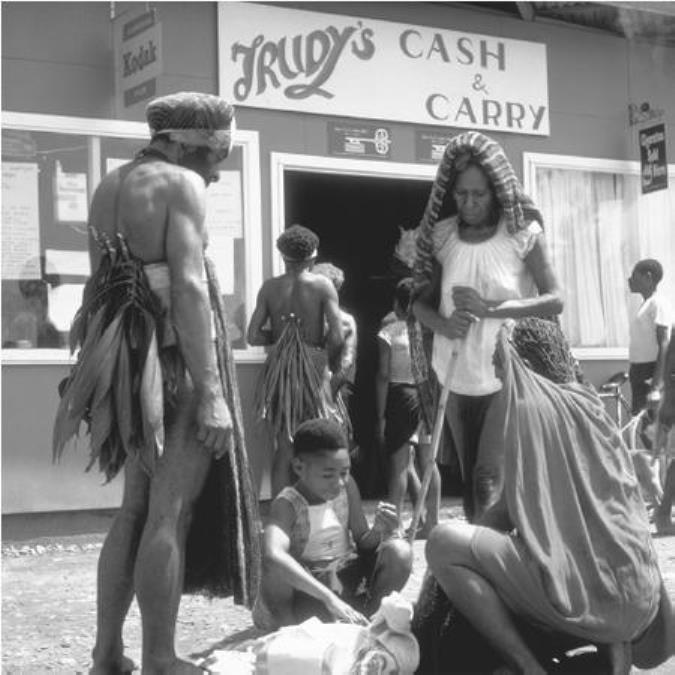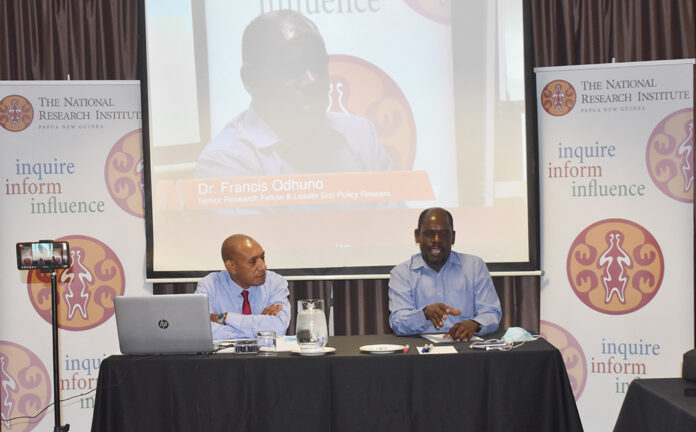LACK of ownership in the retailing sectors by indigenous Papua New Guineans is believed to be one of the factors affecting the “Stret Pasin Stoa” scheme, a program that was aimed at seeing PNG entrepreneurs excel and become economically independent.
PNG National Research Institute (PNGNRI) yesterday presented, again another research finding which focused on identifying solutions, made recommendations and influence policy implementation in the Small to Medium Enterprises (SMEs) sector.
The research report titled ‘Stori bilong stret pasin stoa’: A research that focused on the “reflections from beneficiaries of indigenization of the trade stores program in Papua New Guinea”.
The stret pasin stoa program was introduced in 1974. It was designed to offer credit, entrepreneurship training and business management skills to the SME sector to support new Business start-up and growth of existing enterprises in the 1970s, 1980s and 1990s.

The authors of the report, Thomas Honga and Dr. Francis Odhuno have identified through their findings that the Stret Pasin Stoa Scheme was beneficial to the growth of enterprises and the wellbeing of households and individual recipients.
The authors noted that although the program worked well back then, the business environment, market conditions, and development status of PNG have changed significantly over time and therefore has an impact on the scheme.
The report recommended that the Stret Pasin Stoa program should be revived with new features surrounding the current market trends.
Mr. Honga also highlighted the challenges faced by the scam recipients in which most of them did not succeeded through.
“There were an influx of foreigners and they gave a very stiff competition in terms of pricing to our local businesses and this is still the problem today.
“The other factor includes the changes in government overtime has shifted the priority in terms of funding and attention needed for the program to develop,” Mr. Honga said.
Currently, 90 percent of the business and economic control are owned and operated by the foreigners. Only 10 percent is control by Papua New Guineans.
Peaundi Koyati, who was one of the benefescries from the scheme, said many of the foreign owned retailers in the country are established as retailers for the same wholesalers, and that actually allows them to detect sales and control the pricing.
“In Papua New Guineas, we have not being able to do so and that poses a bigger problem for the future of SME in the country.
“So long as the foreigners owned the retailing sector, Papua New Guinean retailers will never make it even if the government continuous to spend a lot of money into developing the SME sector.
“We need to take ownership of the wholesale, to detect the price and give quality prices to the middle sector,” he said.
A recommendation was also being made to ban all foreigners from expanding to restricted reserve businesses and strictly regulate and legislate the reserve business space for nationals only.
The program is in alignment with the National Goals and Directive Principles of PNG as a founding developing plan for Papua New Guinea and also in relation to the current government’s “Take Back PNG” initiative.


[…] PNG Bulletin Online -June 2, […]
Comments are closed.